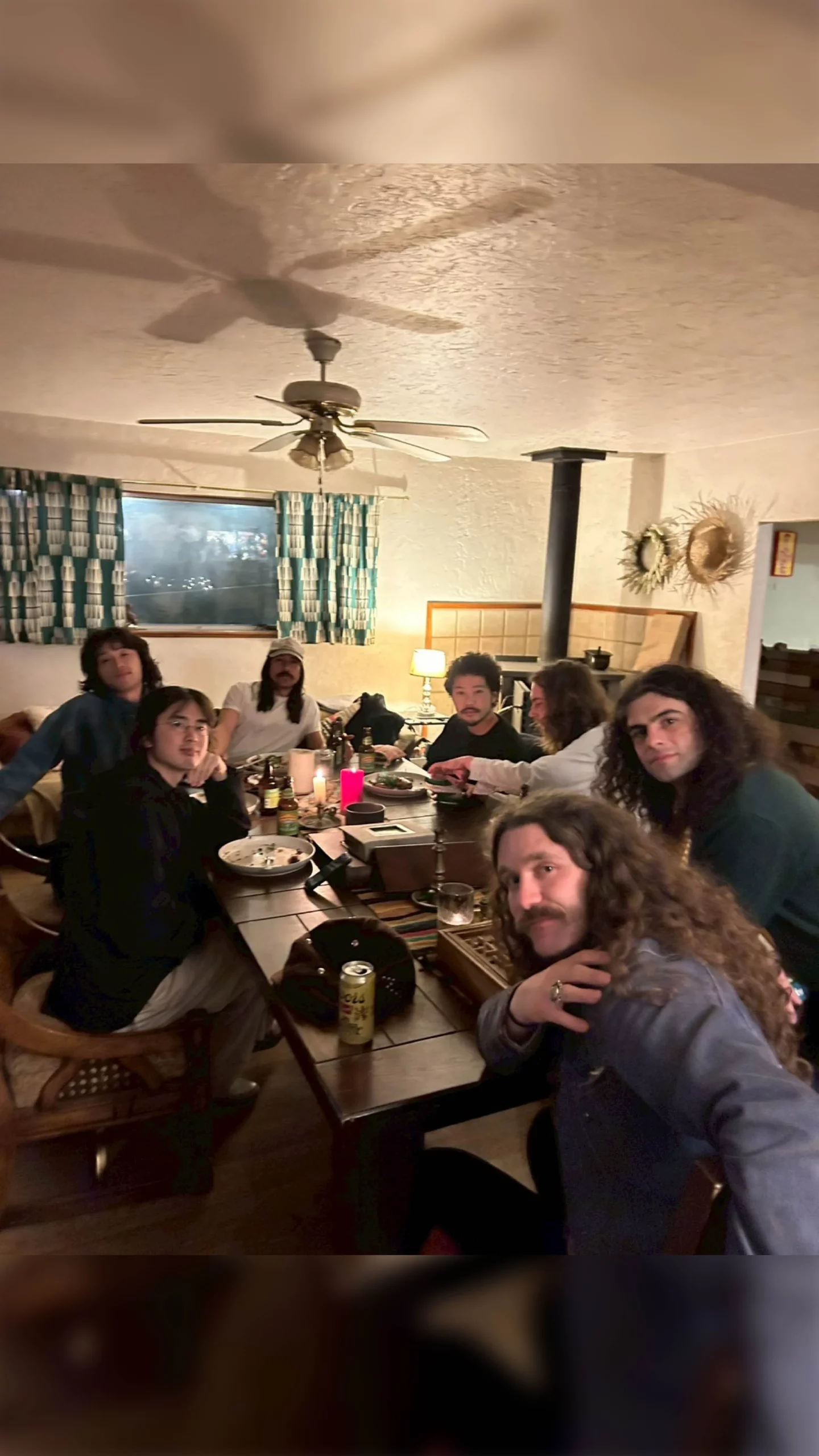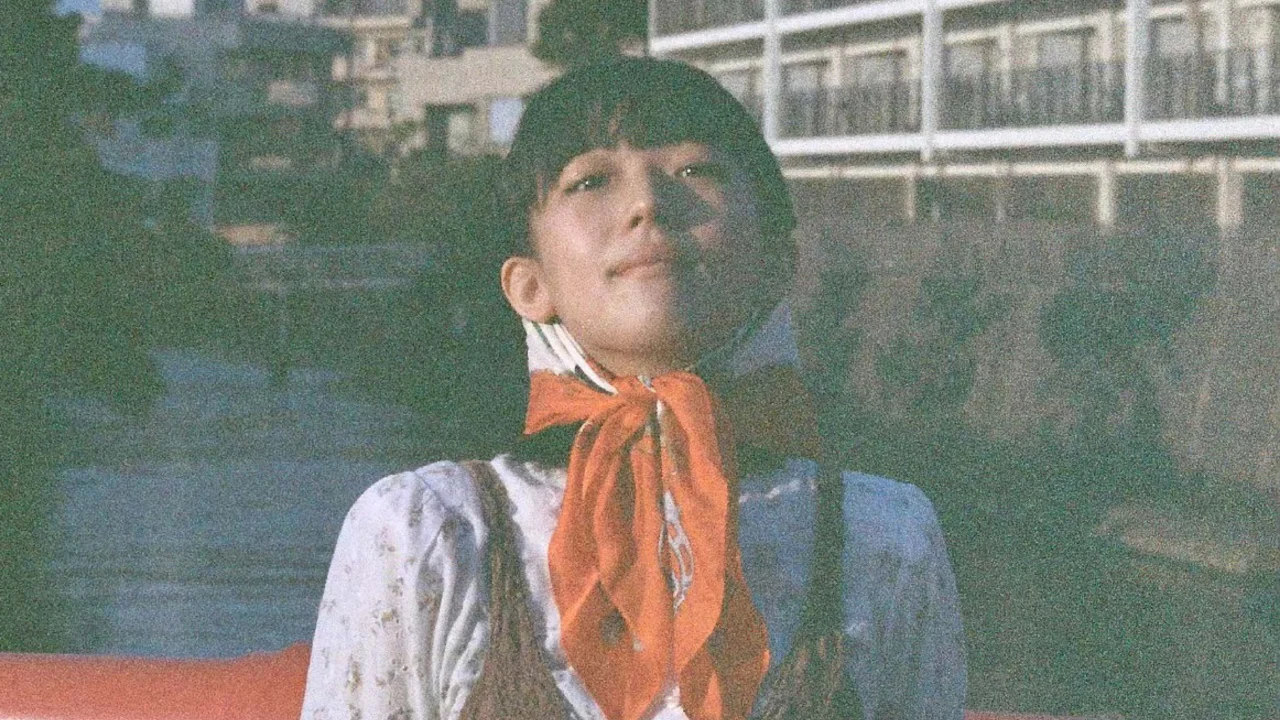We’d just powered through five straight days of shows leading up to Portland. No breaks, no breathers. So for our very first day off, we figured we’d allow ourselves a little treat—a nicer place to stay for once.
Since this tour’s totally DIY, we have to book all our own lodging. Mikey’s got friends across the country, so whenever we can crash at one of their places, we save a chunk of the budget. But we’d set a cap for the whole trip: $1,500 (about ¥214,000). And within that, we’ve got to cover all our stays. When you’re looking for something big enough for four grown adults without breaking the bank, Airbnb’s usually the only real option.
That night, we found a spot in Portland, just ten minutes from the venue—a spacious Airbnb with a garden. It was a bit over our usual range at $150 (roughly ¥21,000), but for once, we let ourselves splurge.
Of course, “room for four” never really means four beds. What you get is two beds and a couch, if you’re lucky. Mikey’s been doing all the driving, so he gets one of the beds. The rest of us settle it with rock-paper-scissors. And naturally, I’ve lost every single match so far. That night was no exception—I ended up on the floor again. At this point, forget songwriting or practicing English. Before the next tour, I need to figure out how to win at rock-paper-scissors.
Saturday, April 13
That said, I slept like a baby—thanks to Takano, who dug around the whole house and stacked blankets and rugs until he’d built me a decent crash spot. I owe you, man. The place itself turned out to be amazing. It was the basement floor of a big house—probably over 100 square meters—with two bedrooms, a living space with another bed, and a couch way too small for anyone to actually sleep on. Even the bathroom was spacious.
When I got up and climbed the stairs to step outside, I saw the garden we hadn’t noticed the night before. It had been too dark to take in anything when we arrived, but now in the morning light, it was beautiful—quiet, fresh, a little wet from the rain.
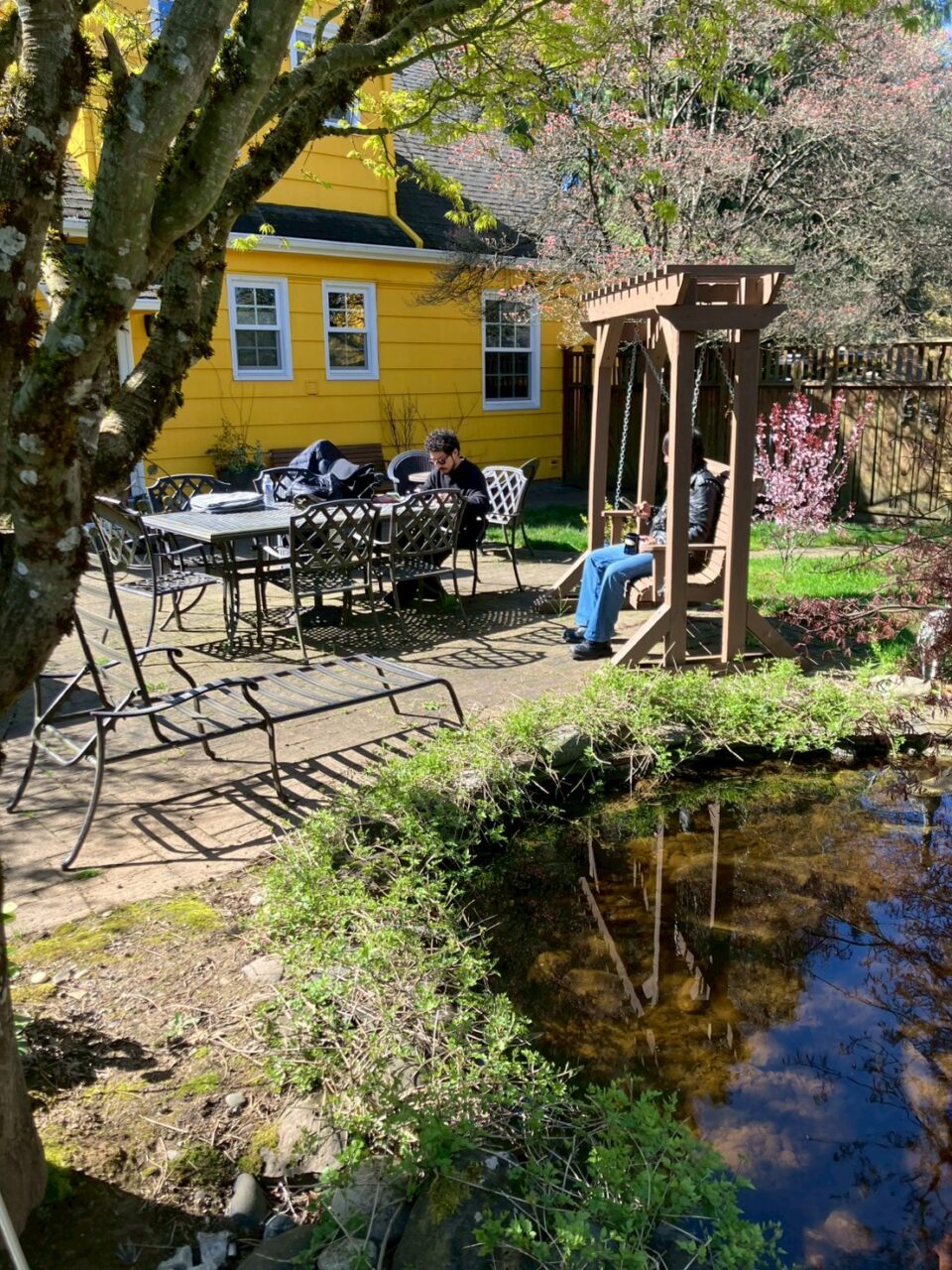
We’d gotten a message from Tomo, a member of Kikagaku Moyo and former Guruguru Brain guy. He recommended a local record store in Portland called Mississippi Records, so we decided to head there first.
It was about a 20-minute drive. When we pulled up, we found what could only be described as heaven for any record lover. The shop sat inside an old, single-story California-style building, marked by a striking red sign above the entrance.
Inside, the space wasn’t huge, and they didn’t have an overwhelming number of records. But the selection was impeccable—every record on the shelves felt intentional. There wasn’t a single throwaway album in sight (not that any record is truly “throwaway,” but you know what I mean—none of those random, unloved pressings that even the staff hasn’t listened to). Everything felt curated with real care.
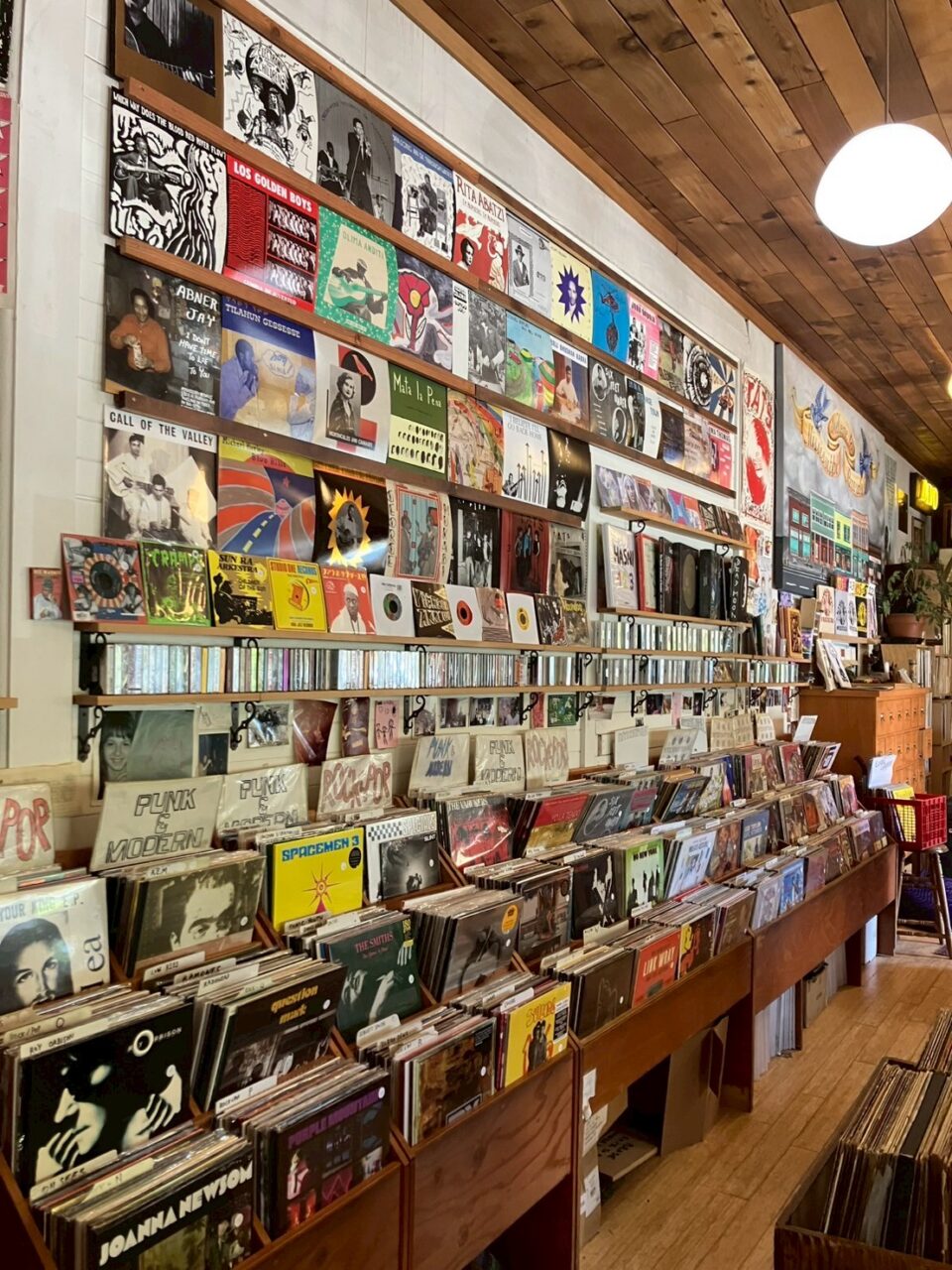
The genre selection spanned a wide range, with a particularly strong focus on “International” music—what would be labeled “World” in a Japanese record store. The section dedicated to African music was especially large, yet it wasn’t cluttered or random; every shelf reflected the thoughtful curation of a selector with clear intent. That’s why everything I sampled sounded incredible. Honestly, I’ve never come across another record store quite like this.
The pricing was also wonderfully balanced—from very affordable to slightly more expensive (though nothing absurdly pricey), making it easy to browse without hesitation. Maybe that’s why the store was filled with young music lovers. There were also two listening turntables available, which anyone could use freely without needing to ask the staff.
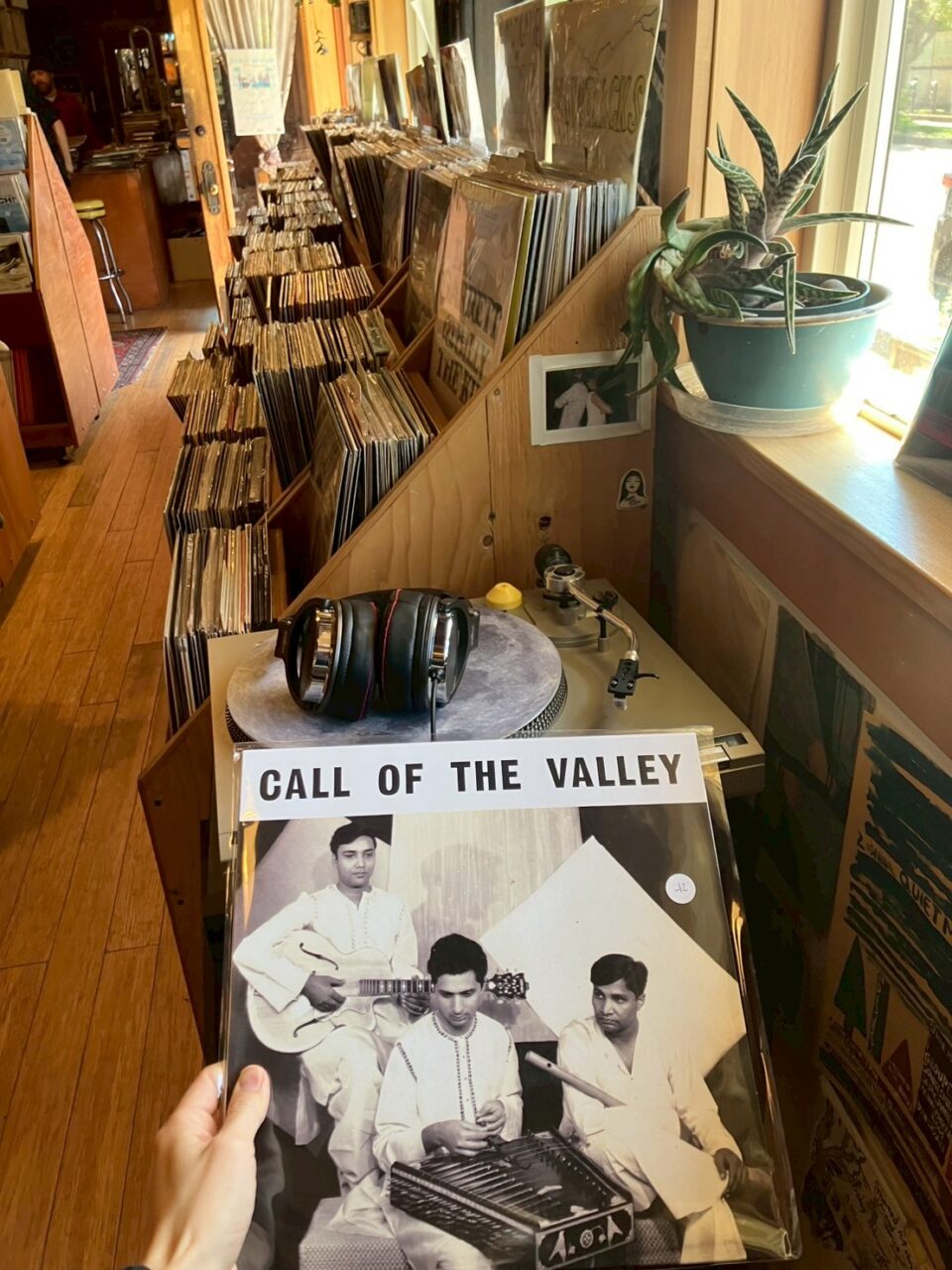
In the end, I picked up three records for a total of $30, and forced myself to step outside, even though I felt like I could’ve stayed forever. It turned out there was a small café attached to the building, which I hadn’t noticed. Watching people quietly enjoying their afternoon at tables set along the sidewalk—soaking in the peace of Portland—made me unexpectedly emotional. How could a place this perfect even exist?
For a moment, I found myself wishing we had somewhere like this in Japan. But then I let the thought go. Even that kind of dreaming felt pointless, somehow—this place was filled with a sacred air, a quiet reverence for music that didn’t need to be replicated.
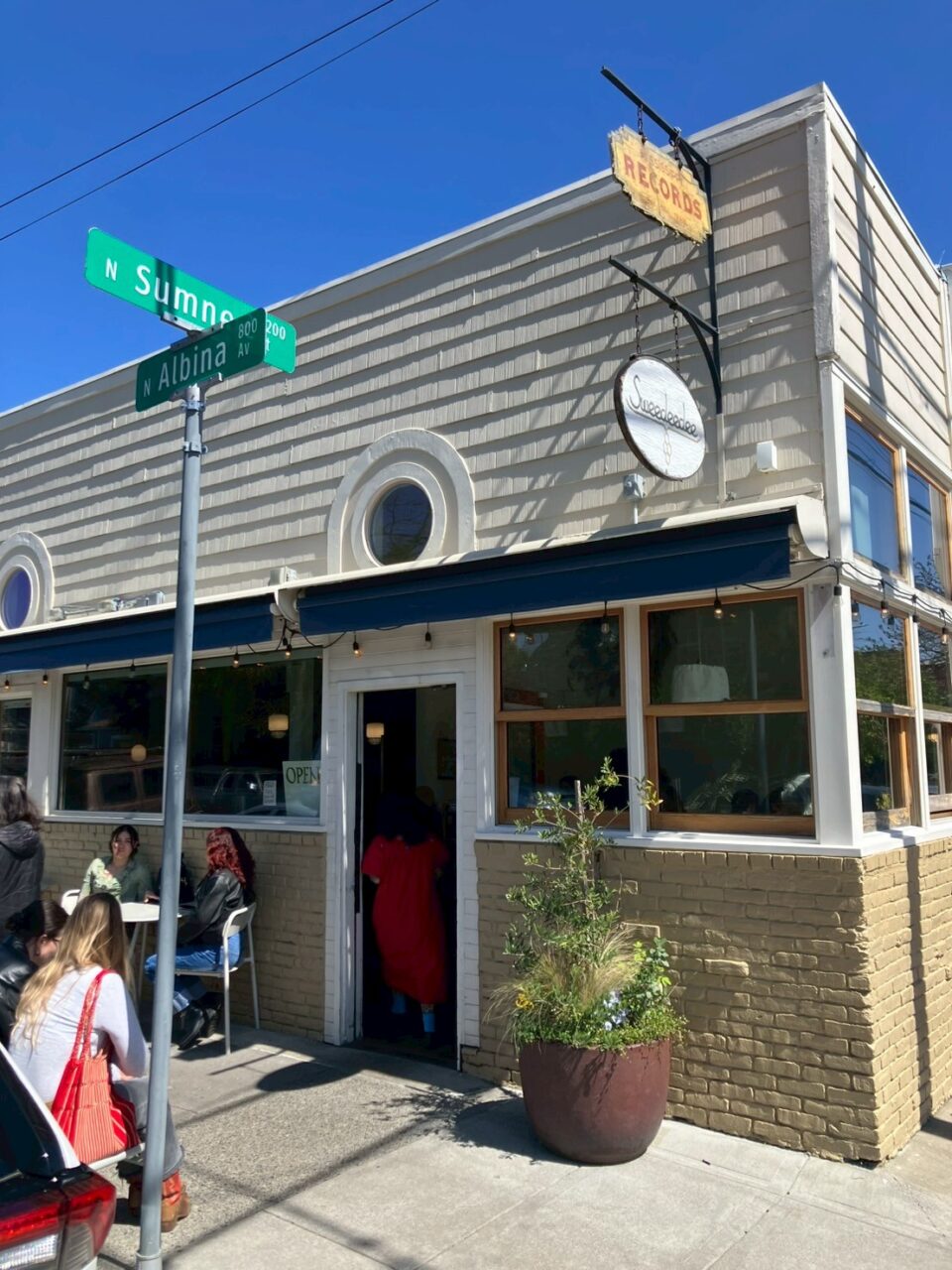
Although this day was meant to be a complete break, the next venue in Chico, California, was nearly 800 kilometers away. So, after a quiet morning, we spent the rest of the afternoon on the road. We left Portland around 1 p.m. and started the long drive.
Inside the van, Mikey’s old rock ‘n’ roll playlist filled the air. As Mikey grew more tired from the long distance, the volume seemed to creep up in tandem. It was clear he wasn’t a fan of the cold either—his sense of temperature was nothing like ours. The windows were always wide open, even when it was chilly. The ride wasn’t exactly comfortable, but after so many days of constant motion, I ended up mostly sleeping through it.
Mikey mentioned that his friend lived near Chico, so we planned to stay at his place for the night. When we reached Chico, Mikey stopped by a supermarket to grab some beer. I asked, “Is your friend’s place far from here?” and he said, “About an hour.” Chico was a small town, so I was curious, but I just silently followed him. Before I knew it, we were driving deeper into the mountains. Soon, the phone signal completely dropped.
It was late, and the road was getting narrower. As I looked out the window, adjusting my eyes to the darkness, I realized we were driving right alongside a cliff.
Where on earth were we going?
A few kilometers later, we arrived. It was a ghost town—dark, deserted, and eerie. As we pulled in, a stray dog dashed past the van. A handful of small homes lined the unpaved alley, each one practically falling apart. The headlights illuminated a bench where three long-haired figures sat with guitars. They looked like they had stepped out of the ’60s, and I couldn’t help but think, What is this place? Had we somehow traveled back in time?
We stopped the van, and then a tall man with a ten-gallon hat and an open Western shirt appeared. He wore a necklace made of animal bones, and his English was slow, with a slight drawl that made it a bit hard to understand. Without saying much, he handed us cold beers, and we clinked bottles, unsure of what was going on. The vibe was unmistakably friendly, but I couldn’t shake the feeling that we’d stepped into a world that was far removed from the one we knew.
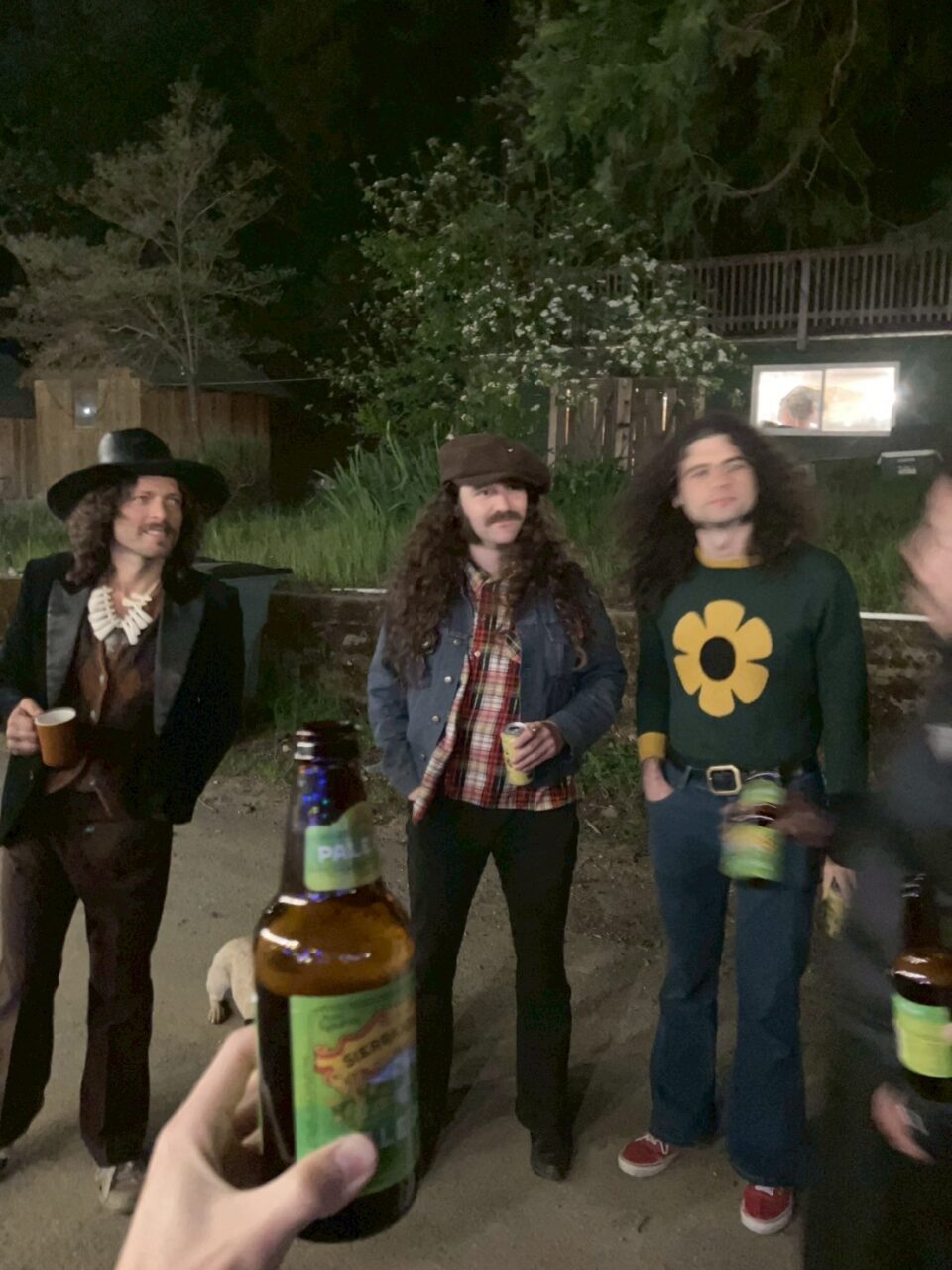
The man in the ten-gallon hat was named Andrew. He seemed to be the manager of the place, and he was Mikey’s friend. It turned out that the dog we’d seen earlier was his. After the toast, he served us a dinner he had prepared, and I have to say, it was unforgettable—it was absolutely delicious.
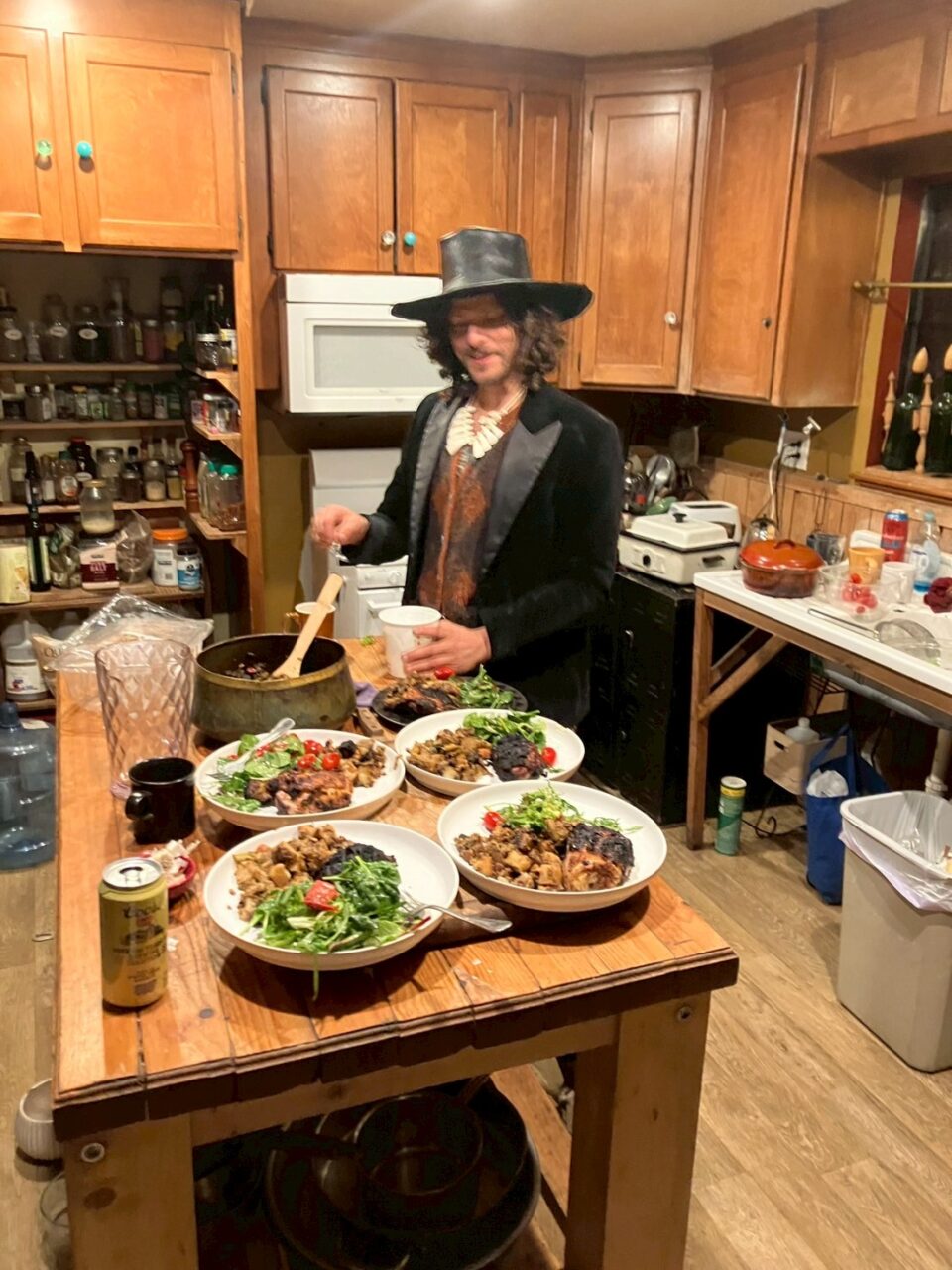
Andrew, the kind hippie guy, even served us tea after dinner. He then took us on a tour of the town. The room we stayed in was a large single-story house, set up as a guest room with multiple bunk beds in two rooms, and it even had a bathroom, toilet, and kitchen. It was a wonderful space—though the water was turned off, and most of the facilities weren’t usable.
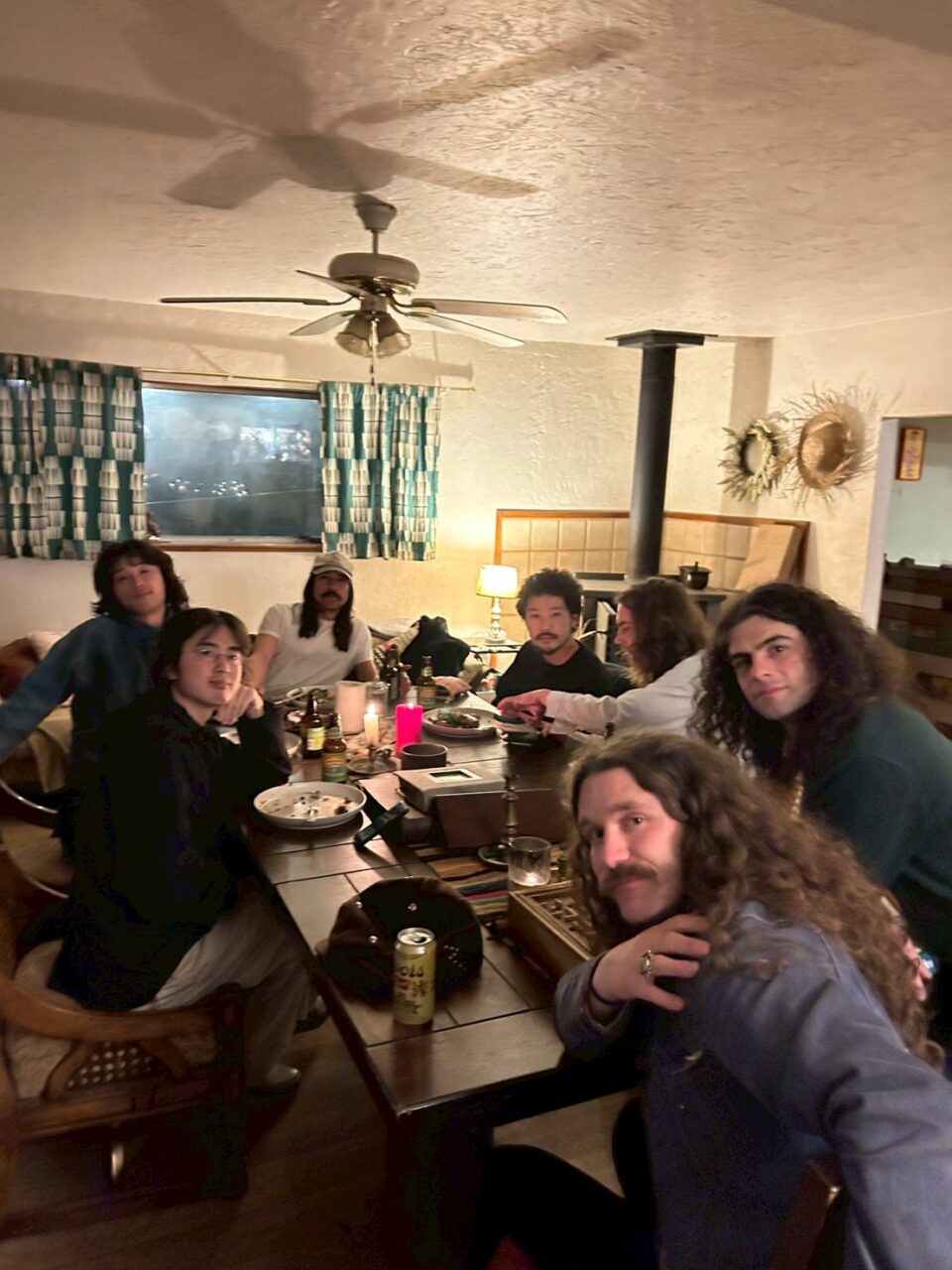
We walked outside and entered various buildings in the town, but each one seemed to barely be standing, most of them decaying. On some tables, there were unfinished paintings, and family photos were taped to the walls, leaving only the remnants of life behind. However, it was clear that no one had lived there for decades. The town itself was just a single street about 100 meters long, and at the very end, there were railroad tracks crossing.
“A really long train passes through here. It takes five minutes just to get through,” Andrew said.
Crossing the tracks, we found a massive river flowing. A moon nearly as full as possible illuminated the rushing water, casting it in a pale, white glow.
We were given blankets and pillows that smelled faintly of mildew, and we decided to sleep. The beds were soft, and I was sure we would sleep well.
Tomorrow morning, I’ll explore the town.
To be continued next time
Click here to see the article in the series.
maya ongaku US TOUR dates 2025
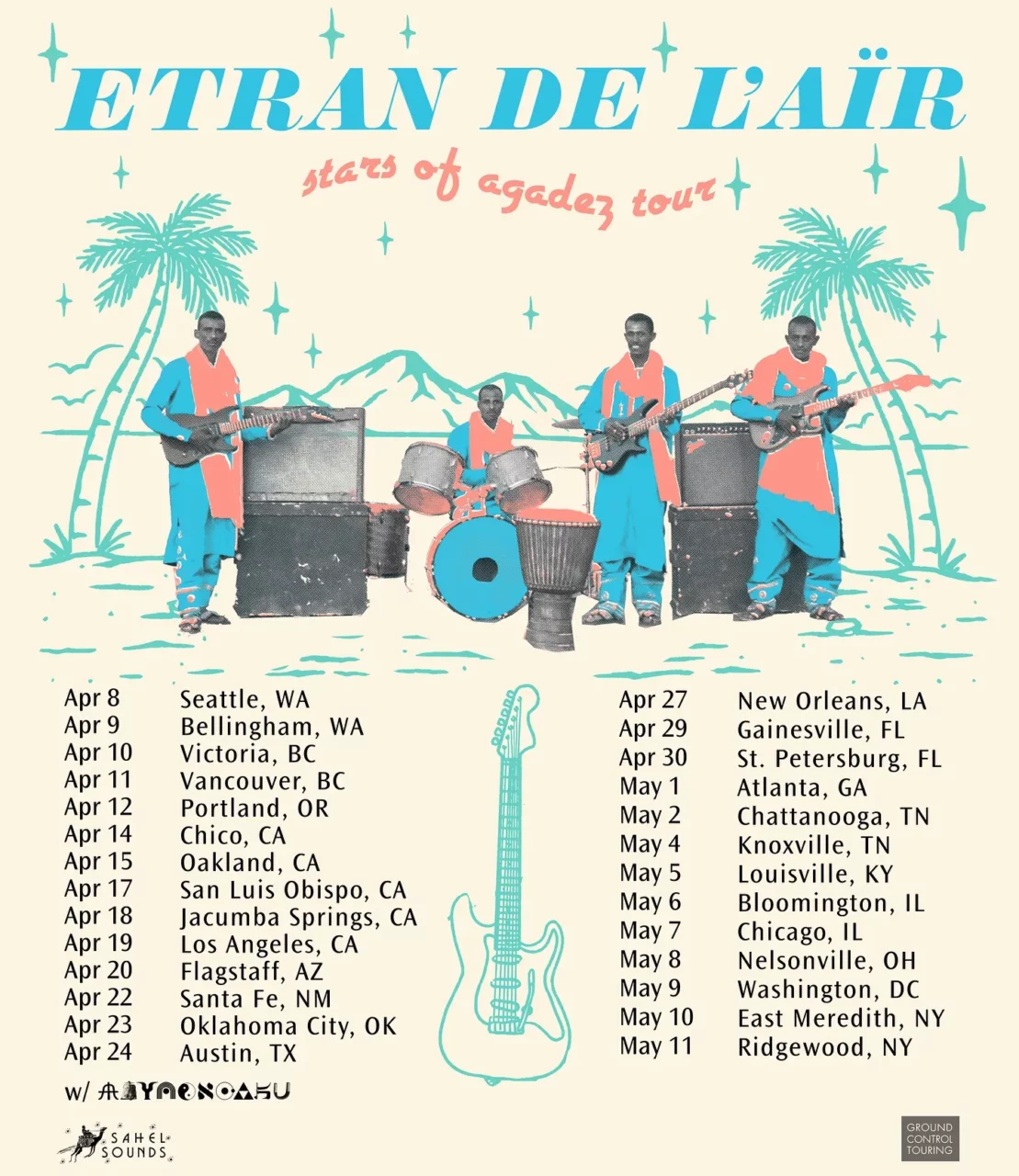
Apr 08 Seattle, WA, US|Neumos
Apr 09 Bellingham, WA, US|The Shakedown
Apr 10 Victoria, BC, Canada|Wicket Hall
Apr 11 Vancouver, BC, Canada|The Pearl
Apr 12 Portland, OR, US|Wonder Ballroom
Apr 14 Chico, CA, US|Argus Bar + Patio
Apr 15 Oakland, CA, US|The New Parish
Apr 17 San Luis Obispo, CA, US|SLO Brew Rock
Apr 18 Jacumba Hot Springs CA, US|Jacumba Hot Springs Hotel
Apr 19 Los Angeles (LA), CA, US|Teragram Ballroom
Apr 20 Flagstaff, AZ, US|Coconino Center for the Arts
Apr 22 Santa Fe, NM, US|Tumbleroot Brewery & Distillery
Apr 23 Oklahoma City, OK, US|Resonant Head
Apr 24 Austin, TX, US|APF 25: Kickoff Party
maya ongaku
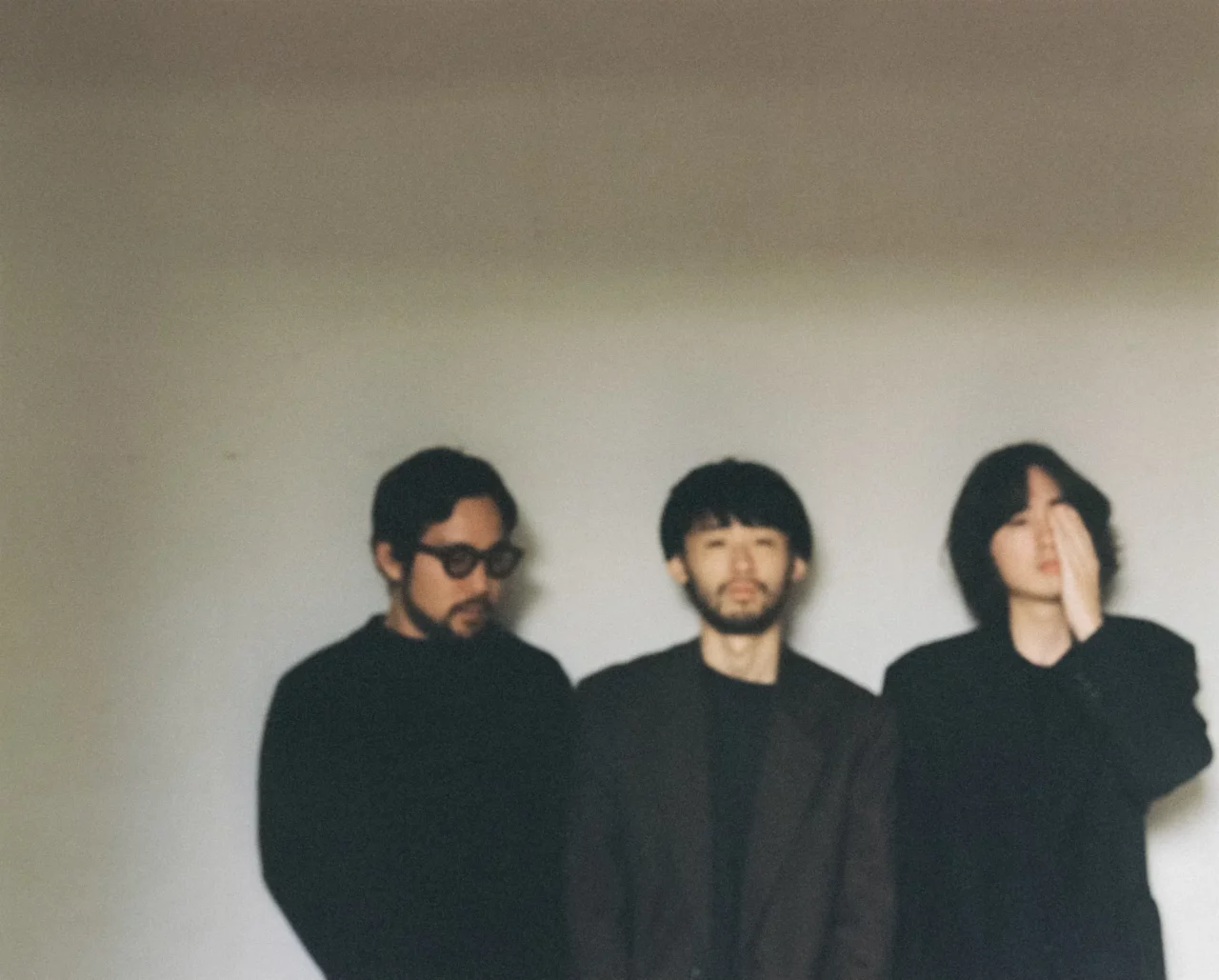
maya ongaku is a three-piece band formed in 2021 by Tsutomu Sonoda, Ryota Takano, and Shoei Ikeda, hailing from a coastal village near Enoshima, Japan. Rooted in an organic, psychedelic sound that feels both grounded and untethered, their music draws from collective improvisation and the atmosphere of their local music scene.
The band’s name—maya ongaku—is a coined term, not taken from ancient history, but imagined as a landscape beyond the visible frame, hinting at the spiritual and the unseen. The group sees their beginning as a kind of spontaneous emergence—like life arising from non-life—something that simply happened, without pretense or planning.
In May 2023, they released their debut album ‘Approach to Anima’ via Guruguru Brain and Bayon Production, followed by a successful EU/UK tour in November and a domestic tour across Japan in December.
Their latest EP ‘Electronic Phantoms’ was released in August 2024. That same month, they hosted “rhythm echo noise” in collaboration with WWW, inviting Dutch artist Felbm to Tokyo. The band was also named Best Breakthrough Artists at the inaugural TOKYO ALTER MUSIC AWARD 2024, a new platform highlighting emerging voices from Tokyo’s independent scene.
maya ongaku has performed at major Japanese festivals such as Mori, Michi, Ichiba, FFKT, FUJI ROCK, Asagiri JAM, and FUJI & SUN. Internationally, they have appeared at festivals in Korea and China, steadily expanding their presence in Asia and beyond.
maya ongaku | linktr.ee/maya_ongaku
Instagram | https://www.instagram.com/maya_ongaku/?hl=ja
X | https://twitter.com/maya_ongaku



